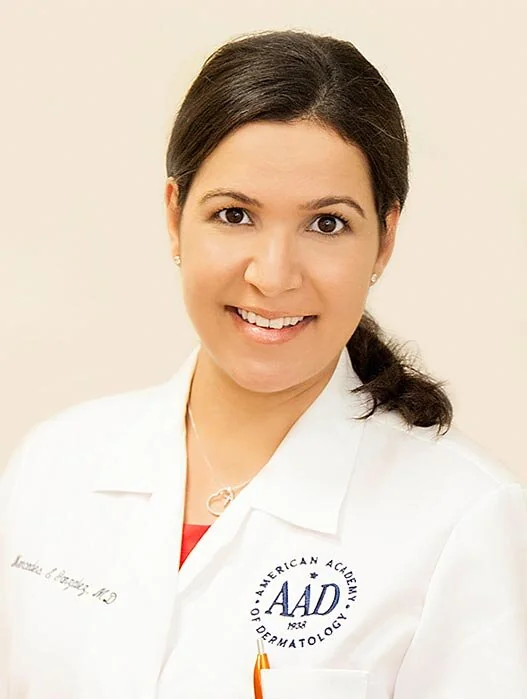
Understanding Pediatric Dermatology and the Role of Clinical Trials
Children can have severe skin disease too. Eczema and psoriasis to rarer disorders like vitiligo and epidermolysis bullosa. Many of these conditions require specialized care and, in some cases, access to innovative treatments that are still under research. Clinical trials play a crucial role in advancing pediatric dermatology by testing new therapies and improving existing treatments to enhance children’s skin health.
For families searching for a pediatric dermatologist in Miami, understanding the latest advancements in clinical research can help them make informed decisions about their child’s skincare needs. While traditional treatments exist for many pediatric skin conditions, ongoing clinical trials are uncovering new possibilities that could provide better outcomes for children.
Why Pediatric Dermatology Research Matters
Unlike adult dermatology, pediatric dermatology focuses on unique challenges presented by children’s developing skin. Conditions like eczema, psoriasis, vitiligo, alopecia areata and epidermolysis bullosa require careful treatment approaches that are tailored for young, sensitive skin. Unfortunately, not all of these conditions have FDA-approved treatments for children, making clinical trials an essential pathway to finding safe and effective solutions.
For parents looking for the best pediatric dermatologist in Miami, it’s beneficial to explore specialists who stay at the forefront of research and offer access to clinical trials that can provide cutting-edge treatment options.
Common Pediatric Skin Conditions That Require Specialized Care
- Eczema (Atopic Dermatitis)
• A chronic inflammatory skin condition that leads to redness, itching, and irritation.
• Current research focuses on new non-steroidal treatments for young children with mild to moderate eczema and biologic medications for those with moderate-to-severe eczema. - Psoriasis in Children
• An autoimmune disorder that causes thick, scaly patches on the skin.
• New trials explore targeted therapies that work by modifying immune responses in children. - Vitiligo
• A condition where the immune system attacks pigment-producing cells, causing skin discoloration.
• Recent studies focus on JAK inhibitors and other immune-modulating treatments for pediatric vitiligo. - Epidermolysis Bullosa (EB)
• A rare genetic disorder that makes the skin extremely fragile, leading to painful blistering.
• Ongoing research aims to develop topical treatments to strengthen the skin barrier and promote healing.
How Clinical Research is Shaping the Future of Pediatric Dermatology
Pediatric dermatology research is advancing rapidly, offering promising new treatment options for conditions that previously had limited solutions. Families interested in cutting-edge treatment options may find clinical trials beneficial as they provide access to innovative therapies that are still in the approval process.
Pediatric Skin Research is leading several pediatric dermatology clinical trials, helping to bridge the gap between research and real-world treatments. These trials focus on refining therapies to ensure they are both safe and effective for children.
Exploring Pediatric Dermatology Research in Miami
For families in Miami looking for a children’s dermatologist, it’s important to consider dermatology specialists who integrate research into their practice. Clinical research institutions like PedSkin Research help drive progress in pediatric dermatology by evaluating new and promising treatments.
Pediatric Skin Research is involved in the following clinical trials:
- Eczema Treatment for Kids: Investigating non-steroidal creams and biologic injections for young children.
- Psoriasis in Children Treatment: Evaluating new oral medications designed to reduce symptoms and prevent flare-ups.
- Vitiligo Specialist for Kids: Studying immune-modulating therapies that may help restore pigment.
- Genetic Skin Conditions in Children: Researching treatments that support children with rare conditions like epidermolysis bullosa.
- Alopecia areata: Studying the oral JAK inhibitors that are already approved in adults with alopecia areata in children 6- 11 years of age.
The Importance of Early Intervention in Pediatric Skin Conditions
Early diagnosis and intervention can significantly improve outcomes for children with chronic skin conditions. Seeking dermatologic care early can prevent complications, reduce symptoms, and improve a child’s quality of life.
Clinical research plays a key role in helping dermatologists understand how different treatments affect young skin and how best to tailor treatments for pediatric patients. Parents who explore pediatric dermatology clinical trials in Miami may have access to emerging treatments that can make a meaningful difference in their child’s skin health.
The Role of Parents in Pediatric Dermatology Research
Parents play a crucial role in making informed decisions about their child’s dermatologic care. Being proactive about seeking the latest research-backed treatments ensures that children receive the most effective and safe therapies available. Participating in clinical research is a valuable opportunity for families who want to contribute to advancements in pediatric dermatology while also exploring potential solutions for their child’s condition.
Finding the Right Pediatric Dermatology Solution for Your Child
If your child is struggling with a chronic skin condition, early intervention is key. While a pediatric dermatologist in Miami can provide traditional treatments, clinical research offers additional opportunities for advanced therapies that could make a difference in your child’s skin health.
Parents interested in learning more about clinical trials in pediatric dermatology can explore opportunities through Pediatric Skin Research, where research-driven solutions help shape the future of children’s skin treatments. By participating in research, families in Coral Gables and Miami contribute to medical advancements that could benefit children worldwide.
Conclusion
Pediatric dermatology is an evolving field, with clinical trials playing a significant role in advancing treatment options for conditions like eczema, psoriasis, vitiligo, alopecia areata and genetic skin disorders. For parents in Miami seeking the best pediatric dermatologist, staying informed about clinical research and emerging treatments can provide more options for their child’s care.
If you’re interested in clinical trials for children’s dermatology conditions, exploring opportunities with Pediatric Skin Research can be a valuable step toward better skin health for your child. By participating in research, you’re not only helping your child but also contributing to advancements that will shape the future of pediatric dermatology.


Request An Appointment
To request an appointment, please fill out the contact form below. Our team will get back to you as soon as possible to confirm your appointment and answer any questions you may have.
We look forward to assisting you.
Meet Our Medical Director
Mercedes E. Gonzalez M.D.
Dr. Mercedes E. Gonzalez is a board-certified pediatric dermatologist. After graduating from Emory University, she earned her degree at Rutgers–New Jersey Medical School in 2004. Always drawn to working with children, she accepted the prestigious pediatrics program at the Morgan Stanley Children’s Hospital of New York–Columbia University where she solidified her interest in treating skin disorders. She then completed a dermatology residency followed by a clinical fellowship in pediatric dermatology at the top-ranked New York University (NYU) Department of Dermatology.
Her gentle, child-friendly bedside manner, combined with her broad knowledge of childhood skin diseases and their treatments, make her the preferred pediatric dermatologist in Miami. In addition to practicing medicine, Dr. Gonzalez currently serves as a clinical assistant professor at The FIU Herbert Wertheim School of Medicine and The Phillip Frost Department of Dermatology at Miller School of Medicine.
Dr. Gonzalez serves as the Principal Investigator on numerous clinical trials and has a special interest in severe skin disease in children. She lectures regularly at Dermatology conferences and to medical students and residents and is the co-editor of 3 dermatology textbooks, including the recently published 2nd edition of Goodheart’s Same Site Differential Diagnosis, and has published over 50 journal articles.

